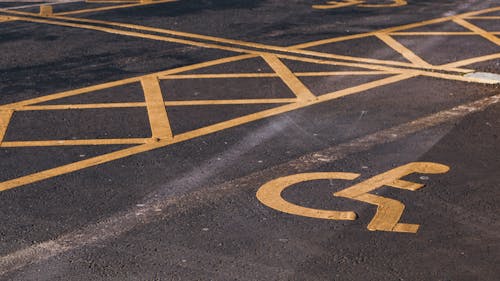RUOCCO: Rutgers must do more to make buildings more accessible
Column: A Piece of Mind

The sound of my alarm bounces off the walls of my room for the fourth time this morning. I finally decide that now is the time that I should get ready for my morning class. I roll out of bed and check the phone that was blaring moments before.
My class starts in 10 minutes. Adrenaline quickly rushes through my body as I rummage through my clothes and dash to the bathroom to brush my teeth and get ready for the day.
I throw something on and dart down the second-floor stairwell of Demarest Hall on the College Avenue campus to the first floor to get to my class in Frelinghuysen Hall, also on the College Avenue campus.
My legs begin to move faster than my mind, and all of a sudden, I pass the gazebo by my residence hall, race down the stairs and run across the street to Frelinghuysen Hall.
Once I get to the side doors that access the underground classrooms, I whip them open and fly down two flights of stairs to B5. I get to class with 2 minutes to spare.
Recently, I tore my ACL and am in preparation for surgery. Afterward, I will be bound to crutches for two months. To prepare, I decided to go through my daily schedule without using any stairs. I quickly discovered this is physically impossible.
My injury is something that I will recover from, yet I began to think about those who have permanent physical handicaps and how they cannot go about a normal day on this campus without taking major detours.
This experience has made me realize how difficult life is at Rutgers for students with disabilities. The entire possibility of getting up last minute and making it to class on time disappears.
Students with disabilities need to plan extra time to just navigate to class. Students in wheelchairs, for example, need to take extra time to get to classes or get into buildings just to hang out with friends, because the University is not wheelchair accessible enough.
Every residence hall has stairs as an option, but not every residence hall has an option for those who are physically handicapped. Every dining hall has stairs that lead to the entrance and stairs within the dining hall itself, but not every dining hall has multiple ramps to get to the same destination. Every lecture hall has multiple floors, but not every lecture hall has elevators to get to those floors.
For students without disabilities, it is easy to wake up late and make it to class. That is a luxury many do not have. It might be simple to think about waking up late but it actually reveals the entire problem of accessibility.
These examples highlight how the University is not as inclusive and as welcoming as we might like to think. Rutgers has never been a wheelchair or handicap accessible campus, and it is time for Rutgers to recognize how many people are affected by this on a daily basis.
Rutgers' stance on diversity and inclusion states that the University “provides accountability and encouragement to our beloved community as together we build a better Rutgers through diversity." Yet Rutgers has not once taken accountability for being an unsafe space for students with physical handicaps.
They have not built a better Rutgers for students who add to the diversity on this campus, especially the students who have physical handicaps.
A student at any moment can become injured, although this experience is a fraction of what it means to live in a society built for able bodies. While it might not be permanent, my injury highlights that even the most unexpected things can happen, and we can all potentially, at one point, become disabled.
The sad reality is that Rutgers does not have a campus that is as safe and as accessible for students who are physically impaired.
I have been a student at Rutgers for three years now — spending two of those years on campus — and never once did I take the moment to realize how this campus affects those who have disabilities.
As a student who runs from class to club meetings to different campuses, I never had the chance to stop and notice how this campus benefits those who are able-bodied. We should be fortunate if we have not had such an experience. We must though also always advocate for those with disabilities and try to make the campus as inclusive as possible — for everyone.
Take this as your sign to start noticing and be a better advocate for change here at Rutgers.
Gianna Ruocco is a School of Arts and Sciences junior majoring in English and journalism and media studies and minoring in psychology. Her column, "A Piece of Mind", runs every other Thursday.
*Columns, cartoons and letters do not necessarily reflect the views of the Targum Publishing Company or its staff.
YOUR VOICE | The Daily Targum welcomes submissions from all readers. Due to space limitations in our print newspaper, letters to the editor must not exceed 900 words. Guest columns and commentaries must be between 700 and 900 words. All authors must include their name, phone number, class year and college affiliation or department to be considered for publication. Please submit via email to oped@dailytargum.com by 4 p.m. to be considered for the following day’s publication. Columns, cartoons and letters do not necessarily reflect the views of the Targum Publishing Company or its staff.



